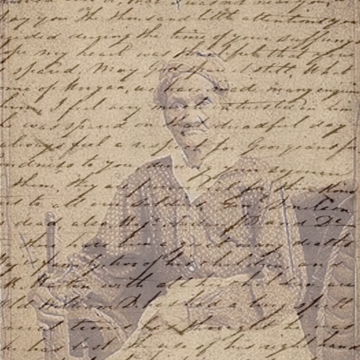Nancy’s Clothing: Witnessing Black Women Navigate the Precarious
Ayana Omilade Flewellen, PhD
Assistant Professor,
Department of Anthropology, Stanford University
Amid the racialized servitude, sexual exploitation, and economic disenfranchisement, that marked the post-emancipation era in the United States, African American women were styling their hair with combs, lacing glass beads around their necks, dyeing coarse-cotton fabric with indigo-berry and sweetgum bark, and fastening garments to adorn their bodies and dress their social lives. We know so little about the everyday lives — tastes, preferences, decisions — of the African American women who lived through the post-emancipation era in the United States. Yet, the material remains of their everyday sartorial practices contain rich evidence of who these women were, who they wanted to be, and how they wanted to be seen. Focusing on Chapter 2 of Dr. Flewellen current book project The Will to Adorn This presentation explores what can be learned by studying the dress and adornment practices of Black women as practices of navigating the precarity of Black life post-enslavement. Starting at the twilight of the antebellum era in Tennessee, the chapter opens with the story of Nancy, an enslaved women at Andrew Jackson’s Hermitage Plantation, who in 1863 walked away from the estate with all her clothing and bedding. Focusing on Nancy's choice to abscond the Hermitage Plantation with her clothing in hand, Flewellen explores the sartorial choices engaged by African American women in the southern United States at the precipice of emancipation. This chapter asks: questions about what women carried and what they left behind — both in their lives, and in the archive — at the dawn of “Surrender." It threads together documentary sources detailing what formerly enslaved African Americans brought with them into Union controlled contraband camps, with the material culture recovered from excavations of the enslaved quarters at the plantation. Bringing these archives together, the chapter illuminates the quiet objects women kept and abandoned and how their choices ultimately demonstrated a skill in ascertaining and predicting their needs amidst social instability.
